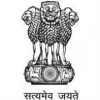Filter interviews by
Mahagenco Interview Questions and Answers
8 Interview questions
Velocity and pressure compounding involves combining multiple stages of turbines or compressors to increase efficiency.
Velocity compounding involves converting pressure energy into kinetic energy in multiple stages of turbines.
Pressure compounding involves reducing pressure in multiple stages of compressors to increase efficiency.
Combining both velocity and pressure compounding can significantly improve the overal...
Tariff is a tax imposed on imported or exported goods. It is analyzed based on the type of goods and the country of origin/destination.
Tariff is a form of protectionism used by governments to protect domestic industries from foreign competition.
Tariffs can be specific (fixed amount per unit) or ad valorem (percentage of the value of the goods).
Tariffs can also be used as a tool for diplomacy, by imposing tariffs o...
Co-Generation plants are power plants that produce both electricity and useful heat simultaneously.
Co-Generation plants are also known as Combined Heat and Power (CHP) plants.
They use a single fuel source to generate both electricity and heat.
The heat produced during electricity generation is captured and used for heating buildings or industrial processes.
Co-Generation plants are more efficient than traditional po...
Thermal power plant generates electricity by converting heat energy into electrical energy.
Fuel is burned to produce heat
Heat is used to produce steam
Steam drives the turbine
Turbine drives the generator
Generator produces electricity
Examples: coal-fired power plant, gas-fired power plant, nuclear power plant
Boilers are classified into different types based on their design, fuel type, and usage.
Fire-tube boilers
Water-tube boilers
Electric boilers
Gas boilers
Oil boilers
Combination boilers
Condensing boilers
Solid fuel boilers
CHP stands for Combined Heat and Power, a system that generates electricity and heat simultaneously.
CHP is a highly efficient energy system that captures and utilizes waste heat produced during electricity generation.
It can be used in various settings such as hospitals, universities, and industrial facilities.
CHP reduces energy costs and carbon emissions by up to 30% compared to traditional energy systems.
Examples...
Conventional power plants use fossil fuels to generate electricity while non-conventional power plants use renewable sources.
Conventional power plants burn fossil fuels like coal, oil, and natural gas to generate electricity
Non-conventional power plants use renewable sources like solar, wind, hydro, and geothermal energy
Conventional power plants are cheaper to build and operate but contribute to pollution and clim...
Thermal power plants use fossil fuels to generate electricity. They have advantages and disadvantages.
Advantages: Reliable source of electricity, low operating cost, high efficiency, easy to operate and maintain
Disadvantages: High initial cost, environmental pollution, non-renewable source of energy, limited availability of fuel
Example: Advantages - Thermal power plants provide a reliable source of electricity tha...
Mahagenco Interview Experiences
3 interviews found
I applied via Company Website and was interviewed in Jul 2024. There was 1 interview round.
(1 Question)
- Q1. What is the concept of velocity and pressure compounding?
- Ans.
Velocity and pressure compounding involves combining multiple stages of turbines or compressors to increase efficiency.
Velocity compounding involves converting pressure energy into kinetic energy in multiple stages of turbines.
Pressure compounding involves reducing pressure in multiple stages of compressors to increase efficiency.
Combining both velocity and pressure compounding can significantly improve the overall eff...
I applied via Company Website and was interviewed before Aug 2022. There were 4 interview rounds.

Written exam with non negative marking by Ibps
(3 Questions)
- Q1. Interview with document verification
- Q2. Mostly personl introduction and some about basic professional knowledge
- Q3. Basic professional engineering knowledge based questions
(1 Question)
- Q1. Document submission
I applied via Other and was interviewed before Oct 2020. There was 1 interview round.
Interview Questionnaire
7 Questions
- Q1. Describe Thermal power plant in brief
- Ans.
Thermal power plant generates electricity by converting heat energy into electrical energy.
Fuel is burned to produce heat
Heat is used to produce steam
Steam drives the turbine
Turbine drives the generator
Generator produces electricity
Examples: coal-fired power plant, gas-fired power plant, nuclear power plant
- Q2. Describe CHP
- Ans.
CHP stands for Combined Heat and Power, a system that generates electricity and heat simultaneously.
CHP is a highly efficient energy system that captures and utilizes waste heat produced during electricity generation.
It can be used in various settings such as hospitals, universities, and industrial facilities.
CHP reduces energy costs and carbon emissions by up to 30% compared to traditional energy systems.
Examples of C...
- Q3. What are the types of boilers
- Ans.
Boilers are classified into different types based on their design, fuel type, and usage.
Fire-tube boilers
Water-tube boilers
Electric boilers
Gas boilers
Oil boilers
Combination boilers
Condensing boilers
Solid fuel boilers
- Q4. Explain Conventional and non conventional power plants
- Ans.
Conventional power plants use fossil fuels to generate electricity while non-conventional power plants use renewable sources.
Conventional power plants burn fossil fuels like coal, oil, and natural gas to generate electricity
Non-conventional power plants use renewable sources like solar, wind, hydro, and geothermal energy
Conventional power plants are cheaper to build and operate but contribute to pollution and climate c...
- Q5. What do you mean by Co-Generation plants
- Ans.
Co-Generation plants are power plants that produce both electricity and useful heat simultaneously.
Co-Generation plants are also known as Combined Heat and Power (CHP) plants.
They use a single fuel source to generate both electricity and heat.
The heat produced during electricity generation is captured and used for heating buildings or industrial processes.
Co-Generation plants are more efficient than traditional power p...
- Q6. Advantages and disadvantages of Thermal power plant
- Ans.
Thermal power plants use fossil fuels to generate electricity. They have advantages and disadvantages.
Advantages: Reliable source of electricity, low operating cost, high efficiency, easy to operate and maintain
Disadvantages: High initial cost, environmental pollution, non-renewable source of energy, limited availability of fuel
Example: Advantages - Thermal power plants provide a reliable source of electricity that can...
- Q7. What is Tarrif and how its analysed
- Ans.
Tariff is a tax imposed on imported or exported goods. It is analyzed based on the type of goods and the country of origin/destination.
Tariff is a form of protectionism used by governments to protect domestic industries from foreign competition.
Tariffs can be specific (fixed amount per unit) or ad valorem (percentage of the value of the goods).
Tariffs can also be used as a tool for diplomacy, by imposing tariffs on cou...
Interview Preparation Tips
Top trending discussions






Interview questions from similar companies

I applied via Referral and was interviewed before Aug 2021. There were 2 interview rounds.

(2 Questions)
- Q1. Why do you want to the Internship in the UN?
- Q2. Walk us through your CV.
Interview Preparation Tips

I applied via Naukri.com and was interviewed in Feb 2024. There was 1 interview round.
Basics Maths and basics reasoning
Interview Preparation Tips

Intern Interview Questions & Answers
National Small Industries Corporationposted on 29 Jan 2022

(1 Question)
- Q1. Where are you from and college name
Interview Preparation Tips

Intern Interview Questions & Answers
National Small Industries Corporationposted on 20 Nov 2024
Topics like ratios,number systems


(3 Questions)
- Q1. What is your next goal in your career?
- Ans.
My next career goal is to gain hands-on experience in my field, develop my skills, and contribute meaningfully to my team.
I aim to secure a full-time position after my internship, where I can apply my knowledge and skills.
I plan to pursue certifications relevant to my field, such as a project management certification to enhance my capabilities.
I want to take on leadership roles in projects to develop my teamwork and co...
- Q2. Why do you want to join the UNCCD?
- Ans.
I want to join the UNCCD to contribute to global efforts in combating desertification and promoting sustainable land management.
Passion for environmental sustainability: I believe in protecting ecosystems and biodiversity.
Desire to work on global issues: The UNCCD addresses critical challenges like land degradation and climate change.
Interest in policy-making: I want to be involved in developing strategies that promote...
- Q3. What do you think your tasks are?
Interview Preparation Tips

Easy to medium level coding
(1 Question)
- Q1. What is pointer
Skills evaluated in this interview

I applied via Company Website and was interviewed before Nov 2022. There were 3 interview rounds.

(2 Questions)
- Q1. AboutcTOR,experience
- Ans.
I have extensive experience in consulting, focusing on strategic planning and operational efficiency across various industries.
Led a project for a retail client that improved inventory management, resulting in a 20% reduction in costs.
Conducted market analysis for a tech startup, helping them identify key growth opportunities and secure $1M in funding.
Facilitated workshops for a healthcare organization to streamline pa...
- Q2. Your choice of posting
(4 Questions)
- Q1. Self introduction and Experience sharing
- Q2. Good and bad qualities
- Q3. Situational decisions
- Q4. Strength and weakness
Interview Preparation Tips
Mahagenco Interview FAQs
Tell us how to improve this page.
Interview Questions for Popular Designations
Overall Interview Experience Rating
based on 2 interview experiences
Difficulty level
Duration
Interview Questions from Similar Companies
Mahagenco Reviews and Ratings
based on 38 reviews
Rating in categories
|
Assistant Engineer
7
salaries
| ₹8 L/yr - ₹14 L/yr |
|
Junior Engineer
5
salaries
| ₹4 L/yr - ₹4 L/yr |
|
Junior Chemist
5
salaries
| ₹4 L/yr - ₹8 L/yr |
|
Executive Engineer
4
salaries
| ₹14.5 L/yr - ₹20 L/yr |
|
Technician
4
salaries
| ₹1 L/yr - ₹6 L/yr |

Government of India

Central Reserve Police Force

Ministry of Defence

India Post
- Home >
- Interviews >
- Mahagenco Interview Questions










